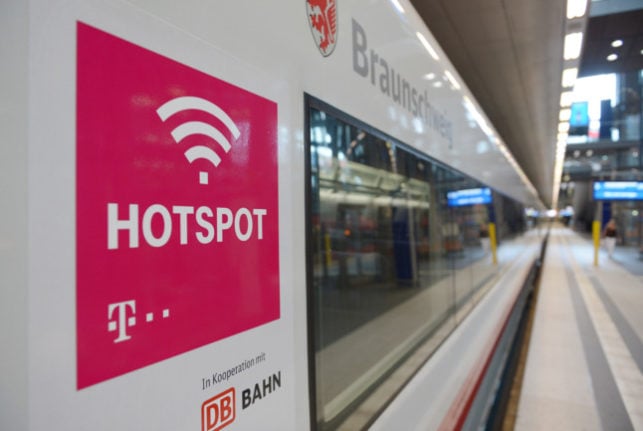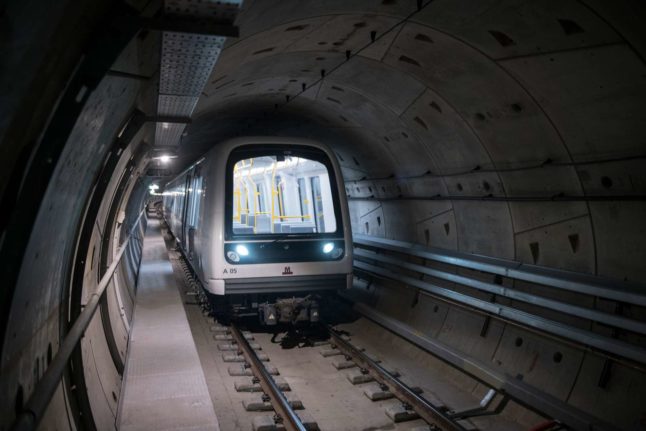Deutsche Bahn chairman Dr. Richard Lutz made the promise in a press conference on Wednesday, where he announced a new partnership with German telecommunications operator Deutsche Telekom to improve the Wifi on trains by 2026.
“Trains are not just a means of transport to our customers – they are an office, conference room, and place to relax all at the same time,” he said.
“To do all that, our passengers rightly demand that there be gap-free coverage with the mobile communications network. We are now laying the foundations needed to achieve this.”
He appeared together with the CEO of German telecommunications operator Deutsche Telekom, Tim Höttges, and the Minister for Transport, Andreas Scheuer (CSU), in the Bahn’s headquarters, high above Berlin’s central train station.
Deutsche Bahn’s rail network covers a total of 33,400 kilometers, 7,800 kilometers of which are major routes which are used by all ICE trains as well as main IC trains.
READ ALSO: Delayed train? Germany’s Deutsche Bahn to give online refunds for first time
Deutsche Telekom wants to supply these major routes with fast broadband by the end of 2024.
By 2025, the company aims to supply another 13,800 kilometers of heavily-travelled routes – used by more than 2,000 passengers daily – with consistently fast Wifi.
The rest of the train operator’s routes should then be competed by 2026.
A “radical improvement”?
The patchy signal along Germany’s railway networks has long been considered one of the weakest areas of the country’s telecommunications network.
In 2015, the government insisted that the networks take action to improve the poor Wifi network on trains by 2019 – but the operators continue to drag their feet.
According to a report by the Federal Network Agency, there are around 550 fewer antennas near railway tracks than are needed to provide consistent service.
In his opening conference remarks, Höttges expressed his discomfort at returning to the age-old topic: “We’re running late on this, I’m fully aware of that,” he told journalists.
Also attending the press conference, Minister for Transport Andreas Scheuer welcomed the new partnership.
READ ALSO: This new European high-speed rail network will take you from Vienna to Berlin in four hours
“The time of ‘I have no network’ must come to an end,” he said. “Mobile surfing and telephony must be possible everywhere and at all times.”
Though the proposed changes are set to take another five years to be completed, Deutsche Bahn and Telekom described the plans as a “radical improvement” on the current situation.
Vocabulary
Wifi access – WLAN-Zugang
Railway lines – (die) Bahnstrecken or (die) Bahnstrecke
Connection – (der) Anschluss
Dead zone – (das) Funkloch
We’re aiming to help our readers improve their German by translating vocabulary from some of our news stories. Did you find this article useful? Let us know.



 Please whitelist us to continue reading.
Please whitelist us to continue reading.
Member comments